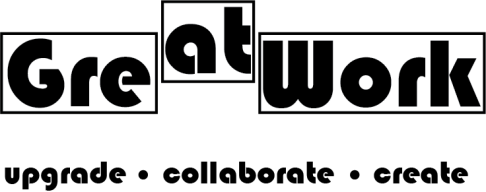My friends and I were just talking over tea the other day, about the U.S. Government surveillance leaks by a U.S. defence contractor where he revealed that the National Security Agency (NSA), monitored phone call and internet data from technology companies like Google, Facebook and Apple.
The defence contractor and ex-CIA man, Mr Edward Snowdon, is now seeking asylum somewhere in Hong Kong, according to media reports, as U.S. Justice Department prepares to indict him on possible charges of treason.
I remarked to my friends over tea how easy it must be now, in the post-911 era, for security agencies to monitor anyone even without the complicit help of technology companies.
With the explosion of social media and social networks, people are increasingly sharing their private lives on a platform that is practically public, at least in so far as how easily the information can be accessed or transferred to the public domain.
The amount of time spent in these virtual spaces has also risen sharply. The global average internet user spends 32 minutes a day on the internet of which 22% or roughly a fifth of which is spent on social networking (Source: http://www.go-gulf.com/blog/online-time).
In Singapore, a Singapore Polytechnic study revealed that youths here (aged 15 -35), spent 5.5 hours a day online in 2012 (up from 4.8 in 2011) and most of the time was spent on “social” activities like reading content, watching videos, replying or commenting on posts and chatting or sharing with friends.
Singaporeans are also among the world’s heaviest users of social media, chiefly Facebook.
Gone are the days when people guarded their privacy jealously or so it seems. Now it appears that the more you share, the more hip you are and the more popular you will be within your social network.
This should surely make it easier to track someone’s background, which school the person went to, the person’s circle of friends, his or her hobbies, where the person went for holidays, who are his/her family members, where the person works, etc., etc.. In short, a treasure trove for government security and surveillance agencies.
Do people even know that all the information they happily post on social media sites can be tracked and monitored and if they do, do they even care?
Right now, the success of these sites seems to suggest that people in general may be aware that they can be monitored but they are just not bothered by it.
But if this is true then it raises another question – are our online identities and personalities and the real world ones in sync? Are they one and the same or are they markedly different? Do we have split personalities when we straddle the virtual and the real worlds?
The reason I ask these questions is because I feel that generally I think people conduct themselves differently in the online space when compared to the real world space. In the real world we are taught not to talk to strangers or share our personal details with them. We are more guarded, more wary, more circumspect of people and of what we hear from them about things in general.
But in the social media space, we seem all too happy to shed our cloak of distrust and let our guards down. We take risks that we would not normally do in the real world. We would not mind “friending” someone on Facebook even if s/he was not a true friend but merely an acquaintance. We don’t mind sharing every little detail of our lives online. You see, in the social media space it was important to be popular and have the most number of friends and get the most number of likes to every post that you make. That’s the engine that drives these networks.
Now this online behaviour or persona that we take on simply plays into the hands of security and government agencies, does’nt it? It makes it easier for these agencies to track or monitor someone.
Its not just security agencies that are going to social media these days to check up on individuals. Companies and job placement & talent search agencies do routine checks on job applicants this way. Students check up on their teachers. Colleagues check up on the co-workers. We all do our own small clandestine background checks of people in the secure confines of our homes at one time or another, don’t we?
But the recent Snowdon-U.S. security leak scandal goes beyond the legal boundaries as regarded by American citizens because the NSA got the complicity of the major U.S. tech giants to access their servers thus compromising the privacy of people’s personal data.
But should the loss of privacy be the price that Americans should pay for more security in America? And this price be justified? Is it equitable? Is this an equitable price for any citizen from any country to pay?
I’m sure going by the online backlash that the Obama Administration is getting since the scandal broke will suggest that the answer to the latter 3 questions is an emphatic “No”.
But this is a national conversation that Americans need to have with the government and both sides need to be aware that whatever they decide, a price will have to paid, no matter what.
A high level of security which assumes that acts of terror will be at the minimum, will exact a high price on internet privacy, meaning people should be prepared for a low level of individual privacy on the Net.
It does not help the cause of security agencies when someone as iconic as the founder of the World Wide Web, Sir Tim Berners-Lee, said that sinister forces are working to control the Internet at the Ernst & Young Entrepreneur of the Year competition in Monte Carlo.
Berners-Lee said “companies and governments in different places all over the world trying to take control of the Internet in different ways” is a much bigger threat to its development than fears over any one company having an online monopoly.
But lest we forget, here’s a reminder for all netizens. A matchbox in the hands of a child or a pyromaniac, almost surely will result in disaster. A tool is an amoral, lifeless thing. It is the person using the tool that decides how s/he wants to use it. So it is with the Internet.
If an entity seeks to “control” the Internet for a broader social good (like better national security), then I say, why not just have an open mind to see how it could be done so that it does not infringe on one’s individual rights too much?
This has to be a discussion with both sides of the privacy rights issue (netizens vs security agencies/government) sitting down to iron out the legal boundaries on what can or cannot be done.
But if this is not an viable option and netizens demand privacy of all their personal data and information on the Net at all costs, then I highly recommend that they harmonize and unify their online and offline identities and behaviours.
In short, only reveal on social media and on the Net what you are prepared to do so in real life. And make sure that your virtual persona and behaviour is no different from who you are in real life.
That way, any security breach compromising personal info will not cause too much alarm as it was info that the individual had shared with the full knowledge that full privacy is not guaranteed.
And if all else fails, then there is always 11 September 2001 to give us all some perspective on this issue.

